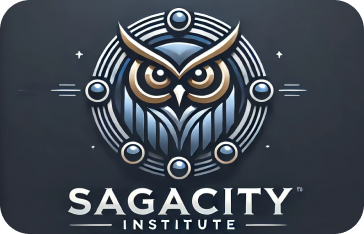Paradigm Shift in Education

We are on the brink of an educational revolution. For those with the foresight to recognize this paradigm shift, several key elements will redefine learning, teaching, and preparation for the future.
Future Skills Take Center Stage. The increasing demand for critical thinking, design thinking, emotional intelligence, and digital and data literacy is undeniable. These and other “Future Skills” are not just essential but imperative for navigating complex global challenges and seizing new opportunities. There is no other path to success. As Texans like to say, “If you can’t run with the big dogs, stay on the porch.”
Rise of Hybrid and Microlearning Models. The hybrid learning model, combining in-person and online experiences, is here to stay. Microlearning — short, focused learning modules — will dominate professional development and lifelong learning due to its timeliness, flexibility, and impact. Supporting these models ensures a continuous, adaptive learning process that is essential for tomorrow’s leaders and innovators.
Credentialing Beyond Degrees. The future workforce will prioritize skills over traditional degrees. Badges, micro-credentials, and portfolio-based evaluations are becoming more valued by employers. That is why stackable, skill-focused certifications are poised for success. This shift represents a prime opportunity for new educational paradigms to align with market demands.
Personalized Learning through Artificial Intelligence. AI is a transformational tool, making education more efficient and engaging. Adaptive learning platforms that tailor content to individual students’ needs revolutionize educational experiences. Seamlessly using AI-driven technology will ensure your place at the front of the line of this innovation.
Media Literacy and Digital Citizenship. Teaching digital citizenship and responsibility, media literacy, and ethical considerations are crucial as technology becomes more integrated into education. Equipping students with discernment and sagacity will be as important as technical skills. Integrating these skills and prioritizing these values will create more responsible and better-informed future leaders.
Global Citizenship. Global interconnectivity and interdependence demand students engage responsibly in a globalized world, act with empathy, and comprehend the challenges of climate change. This requires a thorough understanding of systems thinking, sustainability, and cross-cultural understanding to create a resilient and thriving future.
Global Accessibility and Inclusivity. Technology is bridging gaps in access to quality education. Online platforms, mobile learning, and hybrid models extend opportunities to underserved communities globally. Accessibility features and inclusive design are becoming standard, democratizing education and providing access to collaboration like never before.
Embracing innovation while staying grounded in timeless values is crucial. These emerging trends highlight the need to learn Future Skills that prepare high school and gap year students for an ever-changing world. Education will shift dramatically from only imparting information with an increasingly short shelf life to a nimble, market-driven model. We must empower learners with the wisdom, the capacity, and the willingness to use Future Skills effectively. And that takes sagacity. Don’t hesitate. Now is the time to get on board.
